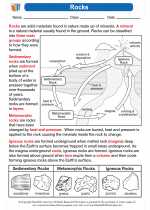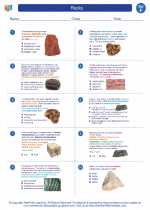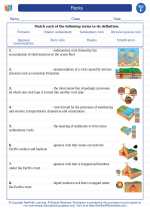Kelvin
Kelvin is a unit of temperature measurement in the International System of Units (SI). It is named after the Scottish physicist William Thomson, 1st Baron Kelvin. The kelvin is the base unit of temperature in the SI, and it is used in many scientific and engineering applications.
Key Points:
- Kelvin is the base unit of temperature in the International System of Units (SI).
- The kelvin scale is an absolute temperature scale, meaning it starts at absolute zero, the theoretical lowest possible temperature where the motion of particles ceases.
- Water freezes at 273.15 K and boils at 373.15 K on the Kelvin scale.
- To convert temperatures from Celsius to kelvin, you can use the formula: K = °C + 273.15
Study Guide:
To understand the concept of kelvin and its significance in scientific measurements, it's important to review the following key points:
- What is the Kelvin scale and how does it differ from the Celsius and Fahrenheit scales?
- What is absolute zero and why is it important in the Kelvin scale?
- How can you convert temperatures from Celsius to kelvin and vice versa?
- What are some real-world applications of the Kelvin scale in scientific research and engineering?
Understanding these key points will provide a solid foundation for grasping the concept of kelvin and its role in temperature measurement.
Feel free to reach out if you have any more questions or need further clarification!
.◂Science Worksheets and Study Guides Sixth Grade. Rocks
Study Guide Rocks
Rocks  Activity Lesson
Activity Lesson Rocks
Rocks  Worksheet/Answer key
Worksheet/Answer key Rocks
Rocks  Worksheet/Answer key
Worksheet/Answer key Rocks
Rocks  Worksheet/Answer key
Worksheet/Answer key Rocks
Rocks  Worksheet/Answer key
Worksheet/Answer key Rocks
Rocks  Vocabulary/Answer key
Vocabulary/Answer key Rocks
Rocks  Vocabulary/Answer key
Vocabulary/Answer key Rocks
Rocks  Vocabulary/Answer key
Vocabulary/Answer key Rocks
Rocks 

 Activity Lesson
Activity Lesson
 Worksheet/Answer key
Worksheet/Answer key
 Worksheet/Answer key
Worksheet/Answer key
 Worksheet/Answer key
Worksheet/Answer key
 Worksheet/Answer key
Worksheet/Answer key
 Vocabulary/Answer key
Vocabulary/Answer key
 Vocabulary/Answer key
Vocabulary/Answer key
 Vocabulary/Answer key
Vocabulary/Answer key

The resources above cover the following skills:
EARTH AND SPACE SCIENCE
Earth’s Systems
Plan and carry out investigations that demonstrate the chemical and physical processes that form rocks and cycle Earth’s materials (e.g., processes of crystallization, heating and cooling, weathering, deformation, and sedimentation).